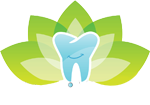FAQs
Here are a few questions patients have about visiting the dentist at Arlington Dental.
For most patients, we recommend visiting the Toronto dental clinic at least once every six months for a checkup and dental exam. Twice a year is the standard, but depending on risk factors and the overall state of your oral health, the dentist may require you to come for more frequent checkups. A dental checkup is the best way to prevent oral health problems and catch them as early as possible.
Each dental problem is unique, but many patients have some of the same problems. The most common of all dental problems is the routine cavity. Cavities occur due to plaque and tartar buildup that causes tooth decay. Once a patient gets a cavity, they must come to the dental office to fill it. Another common issue is gum disease. Dental cleanings typically treat gum disease.
Yes, severely yellow or "permanent" yellow teeth can be whitened, but just not using standard over-the-counter kits and whitening solutions. The only way to get these yellow teeth white again is with a professional whitening at your local dentist's office. You need professional whitening because dentists have access to much stronger whitening treatments than patients have access to going over the counter.
The best way to accurately detect oral cancer is through an oral cancer screening at our dental clinic. Common signs of oral cancer include splotchy or red patches of skin, nodules inside the mouth, or other discoloration. If the dentist detects signs of oral cancer, they will perform a biopsy and have it examined. If cancer is found, it can usually be treated by removing the cancerous mouth tissue.
A good oral hygiene routine is important to treat gum disease at home. Brush twice daily and floss into the gum pockets and areas a toothbrush cannot reach. Another thing to use is a good antibacterial mouthwash to help keep down the germs that can cause gum disease. If necessary, a dental cleaning can help deal with persistent gum disease.
The best way to maintain good oral hygiene is to make sure and develop healthy habits early on. Avoid sticky and hard foods, acidic drinks, and sugary snacks that can cause cavities. Brushing twice a day is recommended, as is flossing between meals. Some patients see better results with an electric toothbrush. Ask your dentist for a recommendation for an antibacterial mouthwash as well to cut down on infection risk.
Depending on the type of procedure a patient has, they should expect pain and sensitivity up to a few days after their procedure. However, if this pain or sensitivity persists longer than a few days, it can be a sign of further issues. Most pain can be managed with over-the-counter medications, but if the pain persists, you should see your Bathurst dentist quickly.
Following your dentist's advice is always the best choice to keep your teeth clean and healthy. For at-home cleaning, brushing twice daily, usually after meals, is a good idea. Flossing between meals is also recommended to keep teeth healthy and debris-free. Using an antibacterial mouthwash and toothpaste with fluoride can reduce germs and plaque buildup and help strengthen your teeth' enamel.
Several things can cause tooth sensitivity. Sometimes teeth can be sensitive after certain dental procedures, but this should go away over time. Damage to teeth, an exposed nerve, or the weakening of the tooth enamel are other ways a tooth can become sensitive. It is best to avoid hot and cold foods and drinks. Sensitivity toothpaste can help strengthen tooth enamel and prevent tooth sensitivity.
Generally, bad breath can be managed by properly brushing and flossing. Brushing all parts of the mouth, including the tongue, can help reduce bad breath. Suppose an underlying issue causes the bad breath though it can be harder to deal with. If the issue is related to an abscess or tooth infection, you must see your dentist to correct the issue.
